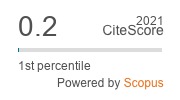ANFIS-GA Based Hybrid Control Method for Enhancement of DC Micro Grids Using Electric Spring
DOI:
https://doi.org/10.17762/msea.v71i4.1077Abstract
Due to the imbalance between supply and demand for electrical energy and the widespread use of Renewable Energy Sources(RES), the grid's stability is hampered and jeopardized. The intermittent and stochastic nature of RES is the root of the instability, and this issue can only be solved by using some form of load control rather than generation management. A technique known as demand-side management (DSM) has emerged as a way to consistently meet the demand for power by controlling the load rather than boosting supply.The electric spring (ES), which has a modest to moderate rating and can be used to directly commission voltage regulation at the customer's location, falls under the category of custom power devices.In this work, an effort is made to control the power consumption of the noncritical loads utilizing the proposed DC electric springs rather of moving them to different times of the day.The identification of the ANFIS parameters is suggested using a Genetic Algorithm (GA) based learning design process. The system under inquiry is thoroughly modelled, as are its control schemes. The other controllers like Artificial Neural Network (ANN), Model Predictive Controller (MPC) and Fuzzy Logic Controller(FLC) compares the performance of the ANFIS-GA controller with that obtained using optimized proportional-integral controllers. Through thorough simulation evaluations carried out in the MATLAB/Simulink environment, the ANFIS-GA control scheme's validity is confirmed. To back up the efficacy and precision of the suggested control technique, a study based on Matlab simulation results is carried out and presented.




